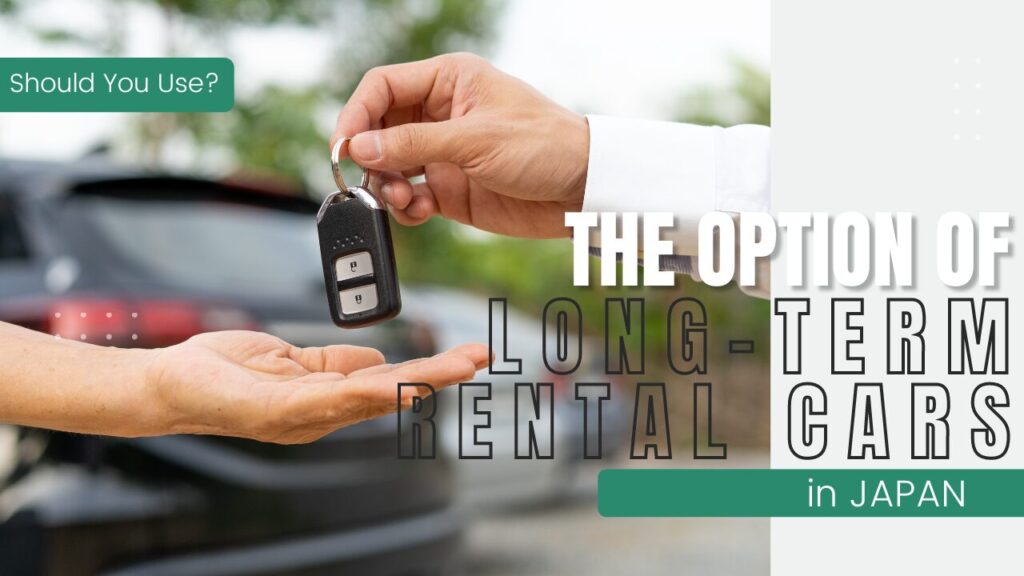
Many foreigners who need a means of transportation in Japan consider car leasing as an option for long-term car use. However, using car leasing in Japan can be unexpectedly challenging for foreigners. The procedures involved in car leasing are very complex and can be a significant burden not only for the foreigners themselves but also for corporate personnel responsible for arranging cars for foreign expatriates.
This article will explain the advantages and disadvantages of car leasing and introduce a new option: long-term rental cars.
Advantages and Disadvantages of Car Leasing

Advantages of Car Leasing
You can drive a new car by paying a fixed amount every month. It is possible to choose the latest model cars, making it an attractive option for car enthusiasts and those who have a specific car in mind.
Disadvantages of Car Leasing
The procedures for car leasing are complex and troublesome. From consultation to screening, filling out the contract, and submitting necessary documents, it may take 1 to 3 months from the start to the delivery of the car. All necessary public documents, such as a seal certificate and a parking certificate, must be prepared in Japanese. Additionally, screening is required to conclude a lease contract, and Japanese is necessary for the screening process. If the screening is not passed, the car lease cannot be used.
Car leasing is based on long-term contracts and cannot be terminated midway. If you terminate the contract early, a penalty fee will be charged. The penalty usually involves paying most of the remaining lease fees in a lump sum. For foreign expatriates, there may be cases where the plan changes, and they return home after a few months of stay. In such cases, the payment of the penalty fee for early termination can be a significant burden.

The Option of Long-Term Rental Cars

Most people think of car leasing when considering “using a car for several years,” but car leasing involves complicated procedures and the risk of early termination. Therefore, we would like to introduce the option of “long-term rental cars.”
Many people associate rental cars with usage from one day to one week, but in reality, long-term rental car services can be used at prices comparable to car leasing, making them a very convenient service.
Advantages of Long-Term Car Rental
The biggest advantage of choosing a long-term car rental is the significantly simplified procedures. This is a particularly welcome point not only for Japanese people but also for foreigners and corporate personnel responsible for arranging cars for foreign expatriates.
Here is a summary of the required documents and procedures for both long-term car rentals and car leasing:
| Long-Term Car Rental | Car Leasing | |
|---|---|---|
| Driver’s License | International license or valid foreign license in Japan accepted | Generally requires a Japanese license |
| Residence Card/Passport | Either required | Both required |
| Payment Method | Credit card or bank transfer | Generally requires automatic bank withdrawal |
| Personal Seal | Not required | Required |
| Seal Certificate | Not required | Required |
| Japanese Bank Account | Not required | Required |
| Parking Certificate | Not required | Required |
| Staff English Support | English support available | Most companies do not provide English support |
| Optional Insurance | Included in the fee | May require separate enrollment depending on the package |
| Automobile Tax | Included in the fee | Included in the fee |
| Vehicle Inspection | Included in the fee | May need to be arranged by the user depending on the package |
| Maintenance | Included in the fee | May need to be arranged by the user depending on the package |
As you can see, the documents and procedures required for a rental car contract are much fewer compared to car leasing, greatly reducing the procedural burden. Obtaining a seal certificate or parking certificate requires cumbersome procedures at the local government office, but these are not needed for rental cars.
Moreover, no screening is required for using a rental car, and you can start driving on the day you sign the contract.
Contracts on a Weekly or Monthly Basis
A major disadvantage of car leasing is the penalty fee incurred if the contract is terminated early. With long-term car rentals, you can contract on a weekly or monthly basis, allowing for flexible termination if the car becomes unnecessary midway.
We strongly recommend long-term car rentals for those planning to stay in Japan for less than three years, those who are not yet sure about their stay duration, or those whose plans may change.

Long-Term Rental Car Service Recommendation: ASAHI MOTORS Rent a Car

ASAHI MOTORS Rent a Car is a long-term rental car service specialist. You can choose the contract period starting from a minimum of one month, making it an ideal rental car service for those staying in Japan for business.
Each customer is assigned a dedicated representative, who will closely support the concerns of foreign expatriates unfamiliar with Japan. The pricing plan includes automobile tax, vehicle inspection, maintenance, and optional insurance, all bundled into a simple package, making it perfect for corporate personnel who want to streamline the procedures.
Summary

When it comes to “using a car for several months to several years,” many people naturally think of “car leasing.” However, car leasing has the risk of early termination fees and involves unexpectedly cumbersome procedures. While rental cars are often thought of as being used on a daily basis, with long-term rental services, you can use them at prices comparable to car leasing. Unlike car leasing, long-term rentals offer flexible termination options and much simpler procedures.
If you plan to stay for more than three years, car leasing might be recommended, but for stays of up to three years, consider long-term rental cars. ASAHI MOTORS Rent a Car, in particular, is recommended for foreign expatriates.
For those who want to simplify the application process and payment procedures, please feel free to contact us.





COMMENT